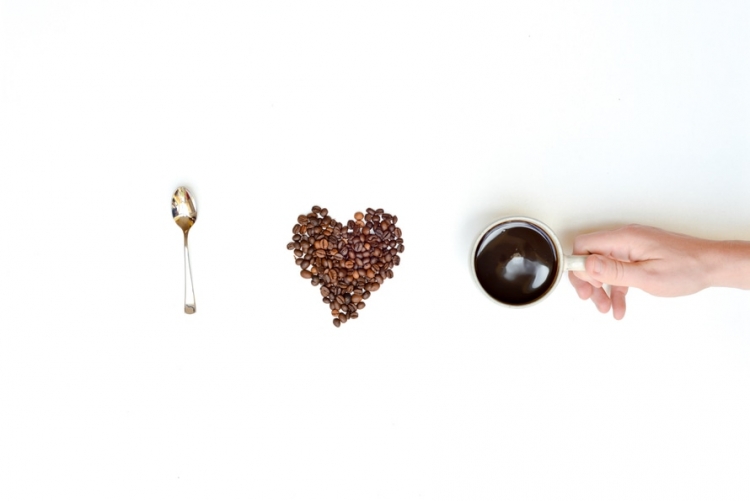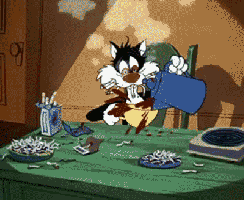Your Brain on Drugs: Caffeine Edition

It's the reason you get out of bed in the morning. The thought of just one more gets you through the day. You're totally addicted and you might not even know it. And no, I'm not talking about love. This miracle substance is caffeine, commonly found in your mutiple-times-a-day espressos, and also in various teas, chocolates, sodas, and medications (specifically pain relievers).
The Body
It is a "mild diuretic", meaning it causes you to pee more often. This can lead to dehydration, so keep your daily intake at a moderate level when it's extremely hot, you're working out, or sweating profusely for whatever reason.
It lowers the production of calcium, which we all know enforces strong, healthy bones. Even if you've finished growing, maintaining bone health is pivotal. The risk of osteoporosis is increased with calcium deficiency.
For those of you who own a "But First, Coffee" shirt, sticker, or better yet, coffee mug, keep this in mind: coffee can make migraines worse, anxiety worse, agitate heart problems, and should not be paired with certain medications. It also strengthens stomach acid levels: the last thing you need before a night out.
The "half-life" of coffee, or time it takes for half of the caffeine you've ingested wear off, is roughly six hours. If you have a cappuccino at 3 PM, you could still feel it at 9 PM, making falling asleep a tough task.
Image Credit: Giphy
The Brain
According to Business Insider, caffeine is a central nervous system stimulant, meaning it excites the brain, causing the pituitary gland to respond as it would in any emergency. The pituitary gland alerts the adrenal gland which responds by flushing the body with adrenaline. This hormone is good for staying active and alert, but not for handling sensitive situations that we might encounter in class or in conversation.
This boost of adrenaline increases your heart rate, makes your blood pump faster and your airways become more open. It also forces dopamine to be re-circulated in the brain, instead of reabsorbed, which increases mood and happiness. In this way, caffeine is comparable to cocaine, but on a much lower level.
The way caffeine actually works in the brain is sneaky and fantastic. As seen in the video below, adenosine is what we release naturally throughout the day and signifies activity. Once the adenosine receptors begin to fill with adenosine, the body becomes sleepier and prepares for sleep. When we sleep, the adenosine diminishes and we feel awake once more.
However, this is where caffeine works its magic. It mimics the shape of adenosine, and binds to the receptors, which blocks the feeling of sleepiness we would've felt had adenosine bound to the receptors. Over time, the brain catches on to this trick, and creates more receptors.
This means you need to consume more caffeine to have the same alert affect, and when you skip your daily cup, feel even more exhausted. Plus, it's a drug, and so withdrawal symptoms such as insufferable headaches and a feeling close to that of dying slowly.
I love coffee. We all do. In addition to the somewhat risky effects it has on our bodies and brains, it has been shown to help athletes perform better, increase attention span and focus, lower appetite and make us happier and less prone to depression.
It i deeply important that we know and care about what exactly we are putting in our bodies, especially when we expect so much physical and mental exertion. As is always the answer with life's pleasures, moderation is all that matters. Check out this chart which describes how much caffeine is in what we consume.








